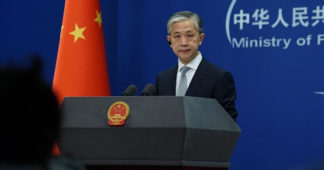Nothing makes the case for public ownership of online public spaces like a billionaire proposing to buy one.
By Katrina vanden Heuvel*
May 3, 2022
“The most epic troll ever.” That’s how one Twitter employee described Elon Musk’s offer to buy the platform, and how it has largely been covered—as the latest entrepreneurial romp in the billionaire’s ever-growing cult of personality. A self-proclaimed “free speech absolutist” who sees Twitter as the “de facto public town square,” Musk did what any zillionaire with a savior complex would: purchase the town square, for $44 billion.
A troll it might be, but the focus on Musk’s unconventional style distracts from a more urgent problem: the growing consolidation of online media that allows a select few of the wealthiest people and companies to control digital discourse.
With online searches dominated by Google, and Facebook parent Meta buying up the world’s biggest social media platforms to amass 3.6 billion monthly active users—almost half the planet—online discourse has centralized under a handful of corporate umbrellas. Worse, it’s increasingly not just a few companies shaping this conversation, but a few individuals: Based on the 2021 Forbes 400, eight of the top 10 richest people in the United States have a significant stake in online media or the public’s access to it. These so-called “public” platforms have become plutocrats’ platforms, and their dominance makes them difficult to avoid—witness that, to comment on the potentially dangerous repercussions of the sale of Twitter, I myself took to Twitter! Like many others, I am trying to see through the vertigo of the situation and figure out what comes next. Because one thing is clear: This consolidation does not create the conditions under which free speech thrives.
* Katrina vanden Heuvel is editorial director and publisher of The Nation, America’s leading source of progressive politics and culture. She served as editor of the magazine from 1995 to 2019.
Published at www.thenation.com
We remind our readers that publication of articles on our site does not mean that we agree with what is written. Our policy is to publish anything which we consider of interest, so as to assist our readers in forming their opinions. Sometimes we even publish articles with which we totally disagree, since we believe it is important for our readers to be informed on as wide a spectrum of views as possible.











